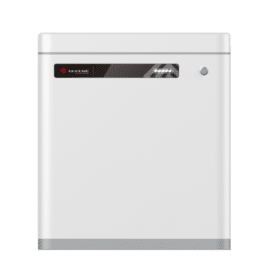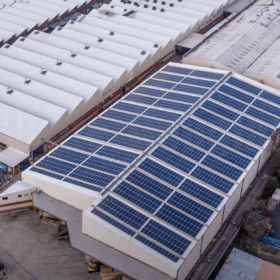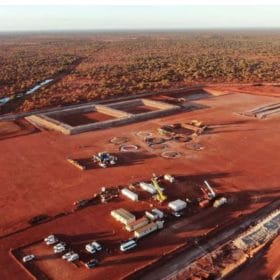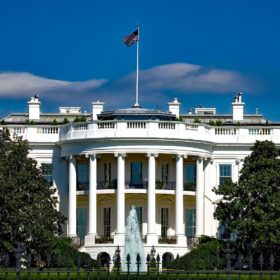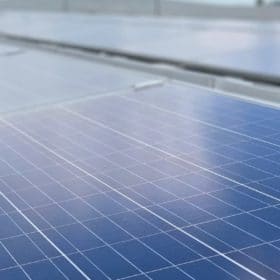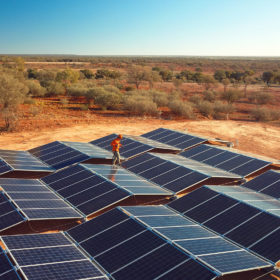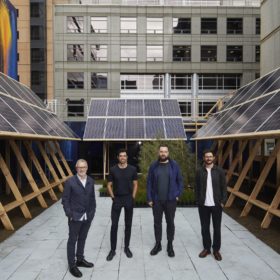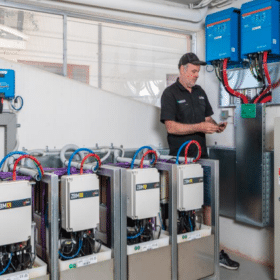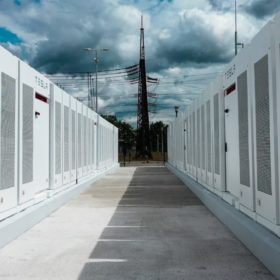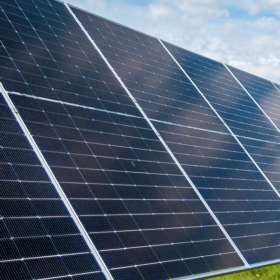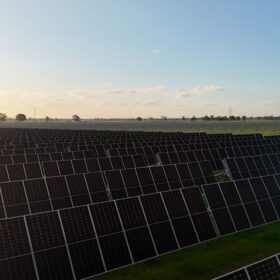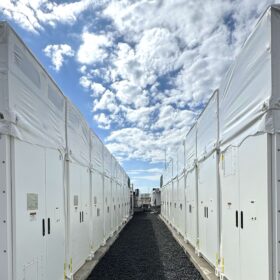GoodWe launches two residential batteries
The Chinese manufacturer has unveiled a low-voltage battery with a modular design and a high-voltage storage system which is claimed to have a one-hour, ultra-rapid charge rate.
Australian first: manufacturer directly shares excess solar generation with employees
Blinds and awnings manufacturer Hunter Douglas will utilise the Enosi Powertracer platform to direct its oversupply of rooftop solar to benefit its workforce.
Saturday read: New pathways in flexible thin film
Having picked up GBP 5.8 million ($8 million) in a series of investments, U.K.-based Power Roll is pushing ahead with pilot production of an innovative new thin film with which it can manufacture both solar modules and capacitors. In the future, the design could also bring the potential for solar generation and energy storage within a single lightweight device.
Red 5 signs on for ride with renewables-powered mining on the rise
Australian gold producer Red 5 is the latest mining company making the switch to renewables, engaging remote power generation specialist Zenith Energy to install a 30 MW hybrid solar PV-gas power plant at its King of the Hills gold mine in Western Australia.
Here’s what Biden’s infrastructure bill offers solar and cleantech
The $2 trillion package includes a proposed 10-year extension of the ITC and PTC and calls for further incentives to add transmission capacity. Most solar advocates liked it, but one nonprofit panned it as being too industry-friendly.
‘Largest rooftop solar farm in Australia’ part of CEP.Energy battery project
Green energy fund CEP.Energy has unveiled plans to construct Australia’s largest rooftop solar farm and a new grid-scale battery on the outskirts of Adelaide as part of its ambition to build 1.5 GW of solar and 2 GW of big battery capacity around Australia.
Sun Cable lodges plan for major solar module manufacturing plant
Sun Cable continues to progress plans for the world’s biggest solar+storage project, lodging a development application for the first phase of a solar module manufacturing and assembly facility to be constructed in Darwin.
Solar steals the show at Melbourne Design Week
An independent exhibition brought to Melbourne Design Week by a group of 15 of the city’s top architectural firms demonstrates the blueprint for Melbourne’s transformation to “A New Normal”. “A New Normal” is a plan to transform Greater Melbourne into a self-sufficient city by 2030.
Redflow boss reveals company’s plan to refine manufacturing, bolstering next leg up
After “bunkering down” in 2020, the Redflow’s CEO discusses major developments within the company, as well as its path towards mass manufacturing processes – which it sees as the key to slashing battery costs by a third and, in turn, solidifying Redflow as a major player in the increasingly sought-after flow battery storage market.
Clean energy technologies can provide grid security for less, study finds
New research shows renewables plus batteries would be able to offer Australia’s electricity grid the same energy security as coal and gas generators, leading to calls for regulatory changes.
